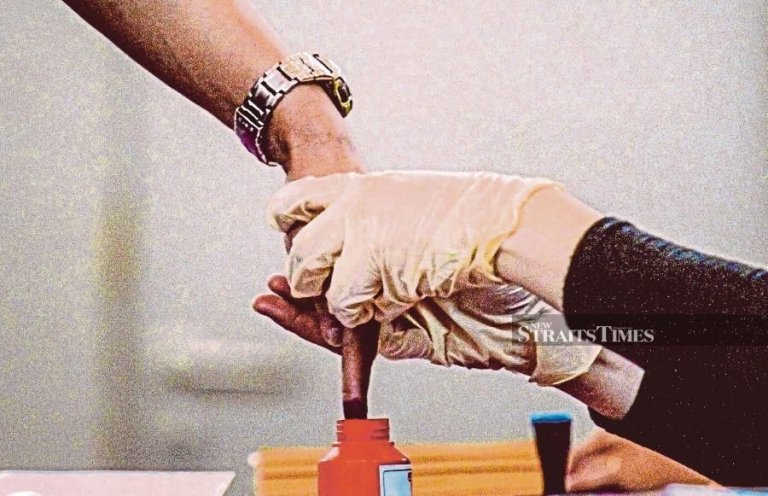THE Johor election marks yet another key event in our election history. After the 14th General Election, the voting age limit was lowered to 18.
The Department of Statistics Malaysia’s population data show that there are an estimated 2.3 million new voters aged between 17 and 20 this year. Bumiputeras account for 77 per cent, Chinese for 19 per cent, Indians for six per cent and others for one per cent, excluding non-citizens.Of the 5.8 million new voters, 40 per cent are in the 17-to-20 age bracket. The people in this group align their aspirations with ideas and beliefs about politics, developed through the early influence of parents, friends, schoolmates and surrounding environments.
But their aspirations may change based on the environment in tertiary education institutions, workplaces, the level of urbanisation they undergo or serious issues taking place then.
For example, the impact of the Covid-19 pandemic on health and the economy, and the recent floods may change their perspectives on politics.
Some may say that youths are dreamers and demand drastic changes, regardless of social realities and consequences. These are short in evidence in Malaysian policymaking.
In the 63 years since independence, there has been a severe lack of youths elected as parliamentary representatives or given full ministerial portfolios.
Recent studies by the Merdeka Center highlighted the conversations on youths’ needs and aspirations.
They found that youths were optimistic about the future and that the majority of them believed they can be successful through hard work,
The studies stated that the youths had five primary needs: financial stability, job security and employment opportunity, Internet connection, effective online learning method and a comfortable living place.
Senior researcher Nesya Tirtayana from the Friedrich Naumann Foundation, a German body for liberal politics, wrote that young voters would raise new dimensions for human rights, freedom and climate change issues.
Although one of the studies by the Merdeka Center suggested that youths were optimistic about their future, they were pessimistic about the country’s direction.
Some 42 per cent of the respondents below 30 believed that Malaysia was not on track to progress due to political, economic, administrative, health and leadership issues.
Some 66 per cent agreed that “politicians don’t care about what the people think”.
This may lead to youths believing that voting will not change anything and that no party can come close to fulfilling their aspirations.
Corruption, mismanagement, abuse of power and other related issues exacerbate negative views of politicians. Who is to blame?
The failure of politicians to uphold the principle of representative democracy is obvious when six or seven out of 10 young people think that their concerns and views do not matter to politicians.
Election Canada, an independent election agency equivalent to Malaysia’s Election Commission, saw poor turnout of voters in the last six general elections.
It deployed community relations officers to spread information among youths on the importance of voting. It also provided voting-on-campus facilities to students.
The sphere of politics and governance must not be complex if young people were to discuss election-related matters and other issues objectively.
Ziauddin Sardar, a prominent public intellectual, once said: “The making of the future is about a willingness to engage in genuine dialogue around rational and valid disagreements.”
Therefore, the focus should be on improving the political system, narrowing economic disparity, diminishing ethnic boundaries, improving facilities in public transport, health and education, getting rid of bureaucracy, scientifically tackling climate change and, more importantly, eliminating corruption.
Provide youths with a space where they can discuss issues objectively, regardless of ethnic or age difference.
Their participation in politics is often overlooked because the boomers would always say that “they are not ready” or “they are not mature enough”.
Actually, they can be a creative and dynamic force and source of innovation. Since they are also well versed and fluent in digital tools, they know what to do to change the system. Pay attention to the power of the youth. Let their voices be heard.
The writer is research analyst at Institut Masa Depan Malaysia
Date: 31 January 2022
Image source: https://assets.nst.com.my/images/articles/31NT11VOTE2_1643559134.jpg




